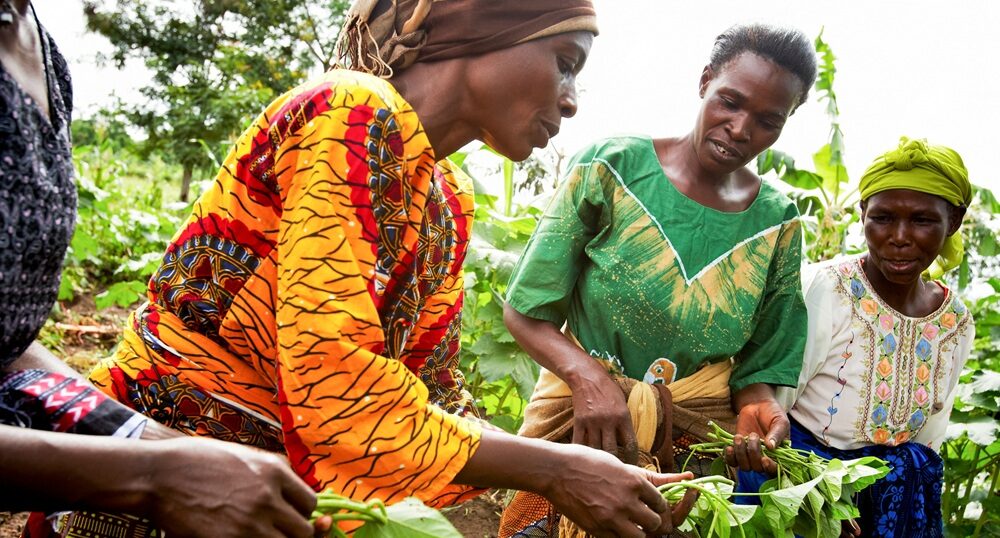ABOUT 70% OF AFRICANS DEPEND ON FARMING FOR THEIR LIVELIHOODS—AND MUST CONTEND DIRECTLY WITH FLUCTUATING, EXTREME WEATHER.
Climate change affects nearly every aspect of agriculture. Extreme weather patterns, lack of water, and problems with soil quality can lead to rising hunger, poverty, and economic inequality. In response, scientists from CGIAR—an important Gates Foundation partner—focus on innovations for climate adaptation and mitigation.
Boosting agricultural productivity in countries like the U.S. generally means industrial farms with large mechanical equipment. But smallholder farmers need different solutions that are affordable and work for their needs. Climate-smart innovations like solar panels, microchips, and genome sequencing provide the opportunity to “leapfrog” industrial infrastructure and transform farming practices for millions.
Explore foundation partner innovations
A NEW WORKHORSE
Drones are timesaving, highly flexible tools for smallholder farmers, with the power to revolutionize agriculture. Their cameras monitor irrigation and detect plant stressors like insects and disease.
Built-in sprayers protect farmers from pesticide exposure and apply fertilizer with precision, targeting the base of the plant. They can also be equipped to spread seed, map soil moisture, and even fight fires!
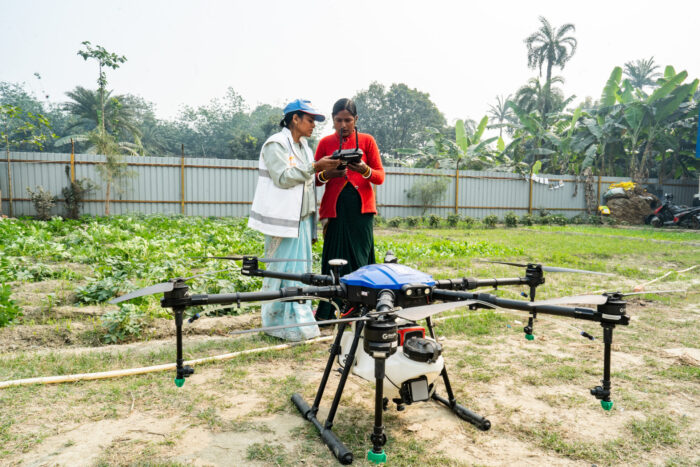
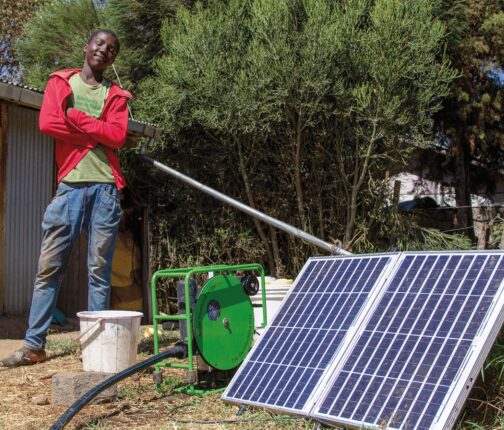
SUN-POWERED IRRIGATION
Climate change stresses water sources, creating major irrigation challenges. To water crops, smallholder farmers often use buckets, treadle pumps (human-powered suction pumps), or costly gas-powered pumps. But these methods require significant labor, time, and expense.
Futurepump’s solar-powered pump provides an energy-efficient solution. Its elevated tank can support irrigation even on cloudy days. While solar-powered Pumps were once too expensive for Smallholder farmers, widespread adoption of solar panels has made this technology far more affordable.
Image courtesy of Futurepump.
FIELD DATA FOR FARMERS
Arable’s autonomous weather station tracks temperature, precipitation, pressure, humidity, and wind speed and direction. Its sensors can track crop health and productivity, and built-in functions like a spectrometer and camera use artificial intelligence (AI) computing to detect and diagnose stressors. With this data, farmers can make timely decisions, such as when to plant seeds or conserve resources such as fertilizers—all while boosting yields
Image courtesy Arable.
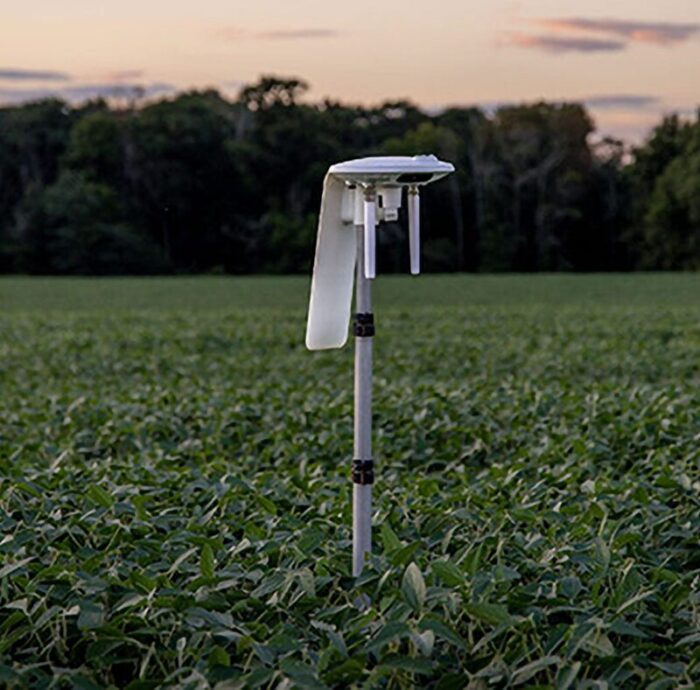

SURVEYING THE ATMOSPHERE
Only 15% of the globe is adequately observed for weather forecasting. As a result, forecasting models rely on incomplete atmospheric data.
WindBorne’s worldwide constellation of small, lightweight balloons is revolutionizing on-site weather observation. They can travel to remote regions and triple circumnavigate the globe, capturing continuous, highly accurate atmospheric profiles. Combined with AI-driven models, the tool has broken numerous records for forecasting accuracy. Our foundation has partnered with WindBorne and local agencies to deliver reliable forecasts to sub-Saharan African farming communities.
Image courtesy WindBorne.
THE CASE OF WHEAT RUST
Wheat rust diseases pose one of the greatest threats to global food security, causing wheat yield losses of 5.5 million metric tons a year.
Working with national and international partners, CGIAR developed a wheat rust early warning system for Ethiopian farmers. Combining forecasts for spore dispersal with crowdsourced data from a farmer hotline, local agencies can now detect outbreaks early.
Text alerts provide farmers with three weeks’ notice to protect their crops with fungicide. This new system has helped more than 275,000 smallholder farmers avoid millions of dollars in damage.
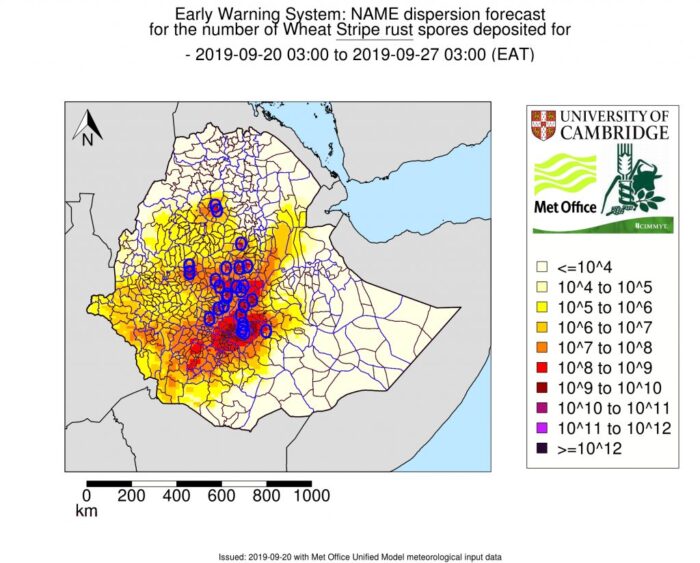
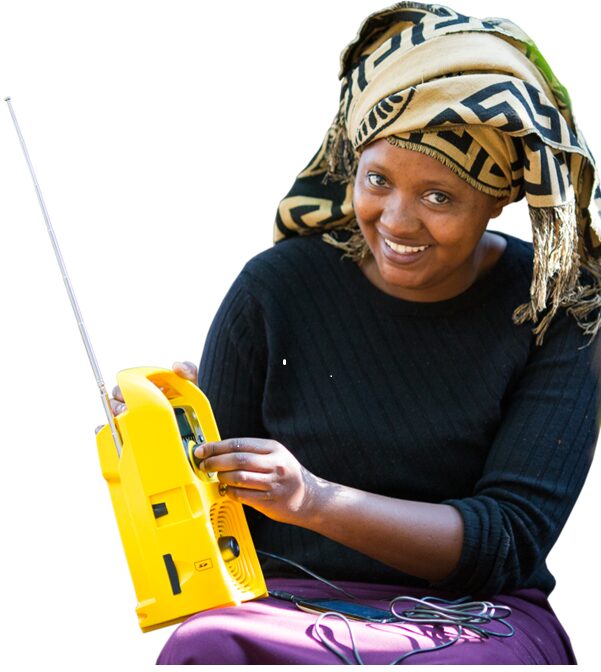
FARM RADIO AND AI
In partnership with CGIAR, Farm Radio International (FRI) uses radio to help African farming communities help themselves. Radio is widely accessible and can be found in even the most remote villages. With more than 700 radio shows in 54 languages across 40 countries in sub-Saharan Africa,
FRI delivers the latest information about farming techniques to inform small-scale farmers. FRI has partnered with CGIAR on an AI-based solution that automatically translates and extracts insights from thousands of voicemails left by 12 million radio listeners. This service helps reduce the digital divide in rural Africa.
